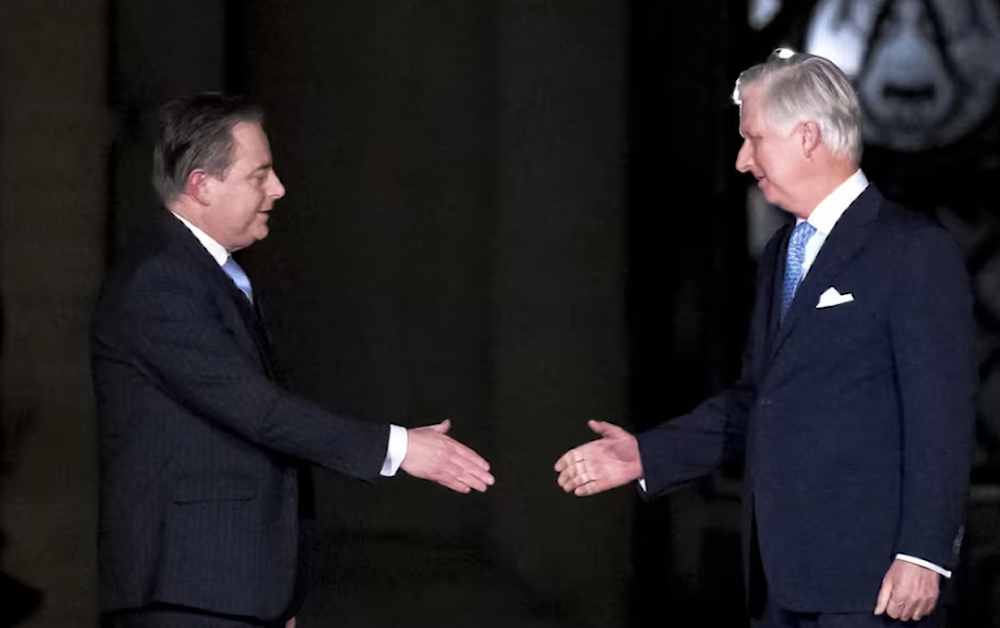Belgium to form government after seven months of negotiations
After over seven months of negotiations, five Belgian parties have reached a coalition agreement, making Flemish conservative Bart De Wever the first nationalist from Flanders to become prime minister.
-

N-VA chair Bart De Wever (left) shakes hands with King Philippe ahead of negotiations to form a federal government at the Royal Palace in Brussels on January 31, 2025. (AFP)
After more than seven months of difficult negotiations, five Belgian parties reached a coalition agreement on Friday to establish a new government led by Flemish conservative Bart De Wever.
The accord makes De Wever the first nationalist from the Dutch-speaking Flanders area to become Belgian prime minister, but he has backed down in recent years on aspirations for the province to become independent.
De Wever channeled Julius Caesar by posting the Latin phrase "Alea iacta est! [the die is cast]" on social media, alongside a photo of himself shaking hands with Belgium's King Philippe.
The royal palace acknowledged an agreement for a right-leaning coalition, in which members must legally approve of the participating parties.
Belgium, which is divided between French- and Dutch-speaking regions and has a highly complicated political system, has an awful record of extremely lengthy coalition negotiations, with one lasting 541 days in 2010-2011.
This time, five factions have been attempting to form a coalition since the June elections, which failed to generate a clear majority, with discussions chaired by 54-year-old De Wever, whose party won the most seats.
The right and center-right won the June elections, prompting observers to expect that coalition discussions will take less time than normal.
However, discussions stalled throughout the summer over how to close the country's budget deficit, which is expected to be 4.4% of GDP in 2023.
De Wever, Antwerp's mayor since 2013, has pushed for social benefit cuts and pension reforms, prompting criticism from labor organizations. He threatened to give up searching for a coalition if no compromise was achieved by Friday.
Negotiators need one more marathon 60-hour session to iron out disagreements in their 800-page program. The new administration consists of three Dutch-speaking Flanders parties: De Wever's conservative N-VA, the centrist Christian Democrats, and the socialist Vooruit (Onward).
Belgium's ruling coalition includes the centrist Les Engagés and the center-right Reformist Movement, holding a combined 81-seat majority in the 150-seat parliament.
Belgium is one of seven European Union countries facing disciplinary action for running past a deficit above three percent of GDP, in violation of the bloc’s fiscal rules.
As De Wever is poised to become prime minister, it is worth noting that his N-VA party was previously part of a ruling coalition from 2014 to 2018.
He should succeed the incumbent prime minister, Alexander De Croo, whose seven-party coalition took 493 days to form in 2019-2020 and has served as caretaker leader since the June elections.

 3 Min Read
3 Min Read









